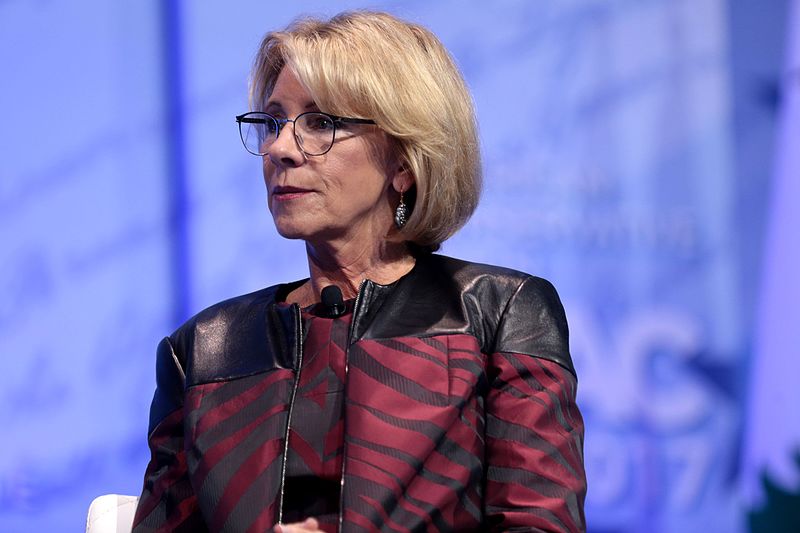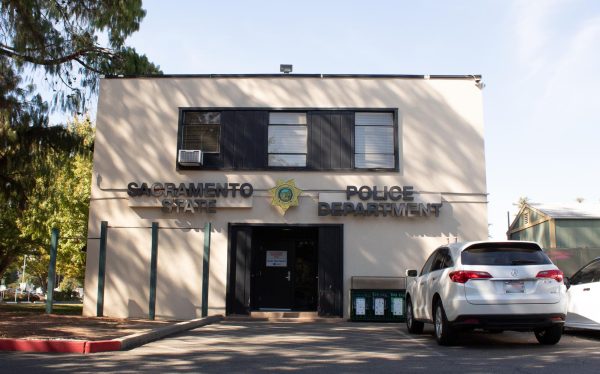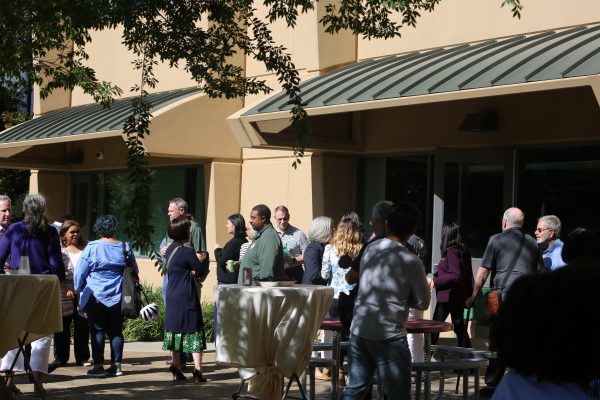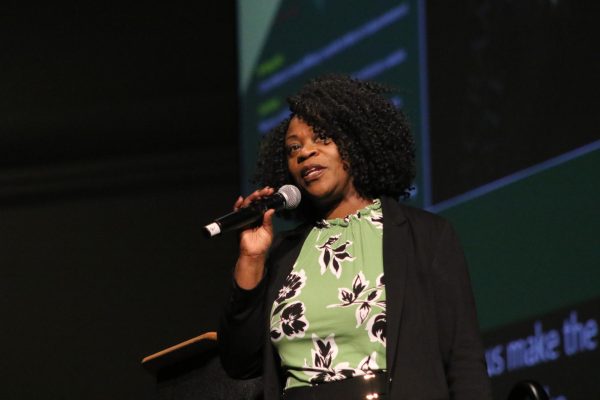Public comments open on proposed sweeping Title IX changes
Sac State unable to comment on changes without direction from CSU
Photo by Gage Skidmore - CC BY-SA 2.0
U.S. Secretary of Education Betsy DeVos speaking at the 2017 Conservative Political Action Conference (CPAC) in National Harbor, Maryland. DeVos recently announced changes to Title IX that are now open to public comment through Jan. 28.
November 30, 2018
Secretary of Education Betsy DeVos’ proposed changes to Title IX that reduces universities’ liability in sexual assault cases are now open to public comment after being announced Nov. 16.
Public comment will be open for 60 days closing Jan. 28 and can be made at regulations.gov.
Sacramento State is unable to provide comment on the proposed changes to regulations at this time, according to William Bishop, director of the office of equal opportunity. Bishop said the school is waiting for direction from the chancellor’s office as to how these changes will affect how the university’s Title IX office investigates charges of sexual assault and harassment.
The goal of the changes is to clarify the rules and requirements of schools, according to a press release from the U.S. Department of Education. The changes are expected to save $286 to $368 million over the next decade.
Jaime Gerigk, WEAVE director of counseling and outreach, said she was skeptical of the proposed regulations. WEAVE is a Sacramento based care provider for sexual and domestic assault victims.
“These proposed regulations, they protect the colleges and the accused and do not support the survivors,” Gerigk said. ”If money is saved, it is on that back of the survivors.”
In the proposed regulation, a college’s responsibility to investigate sexual assault and harassment will be limited to events that happen on campus or within an educational program, meaning the school would not investigate incidents that happen off campus.
The proposed regulations also increase protections for those accused of sexual assault, including the right for the accused to cross-examine their accuser. This will be subject to local Rape Shield laws.
In California, this protection for the victims is stated in California Evidence Code Section 1103, which says that previous sexual behavior of the victim cannot be presented as evidence. However, it does not apply to previous sexual actions with the defendant.
Gerigk called this change “very dangerous.”
“The person who was assaulted needs to work with their assailant, which can retraumatize a survivor,” Gerigk said. “You’re asking for the person was assaulted to be cross-examined with their assailant right there, it’s just going to de-incentivize people from reporting.”
The executive order says that schools will now define sexual harassment as “unwelcome conduct on the basis of sex that is so severe, pervasive, and objectively offensive that it effectively denies a person equal access to the recipient’s education program or activity.”





































































































































James Lucas • Dec 1, 2018 at 3:09 pm
So what you are really saying is those who are falsely accused are just collateral damage, just the price of doing business because there something more important than if you are punishing an innocent person. How is it that one senator put it, “If you have 10 men accused of sexual assault and 2 or 3 of them are falsely accused that it’s better to just get rid of all 10.” There are thousands of stories of young men being thrown out of school over hearings that are most often being labeled as kangaroo courts. Only a handful of those young men have had the means to turn to the courts to receive the justice that was denied them. But seems to be the glaring fact missing from you article (other than the misstatements about the new title ix changes), you don’t talk about court ruling and settlements by Universities accused of denying due process to the accused. How about the ruling by the Sixth Circuit Court in it’s ruling about cross-examinations? As the court put it, “Universities have a legitimate interest in avoiding procedures that may subject an alleged victim to further harm or harassment. And in sexual misconduct cases, allowing the accused to cross-examine the accuser may do just that. But in circumstances like these, the answer is not to deny cross-examination altogether. Instead, the university could allow the accused student’s agent to conduct cross-examination on his behalf. After all, an individual aligned with the accused student can accomplish the benefits of cross-examination—its adversarial nature and the opportunity for follow-up—without subjecting the accuser to the emotional trauma of directly confronting her alleged attacker. I just have one question for you, exactly what due process protections are giving to the accused under the 2011 Dear College letter or the 2014 Questions and Answers on Title IX and Sexual Violence?